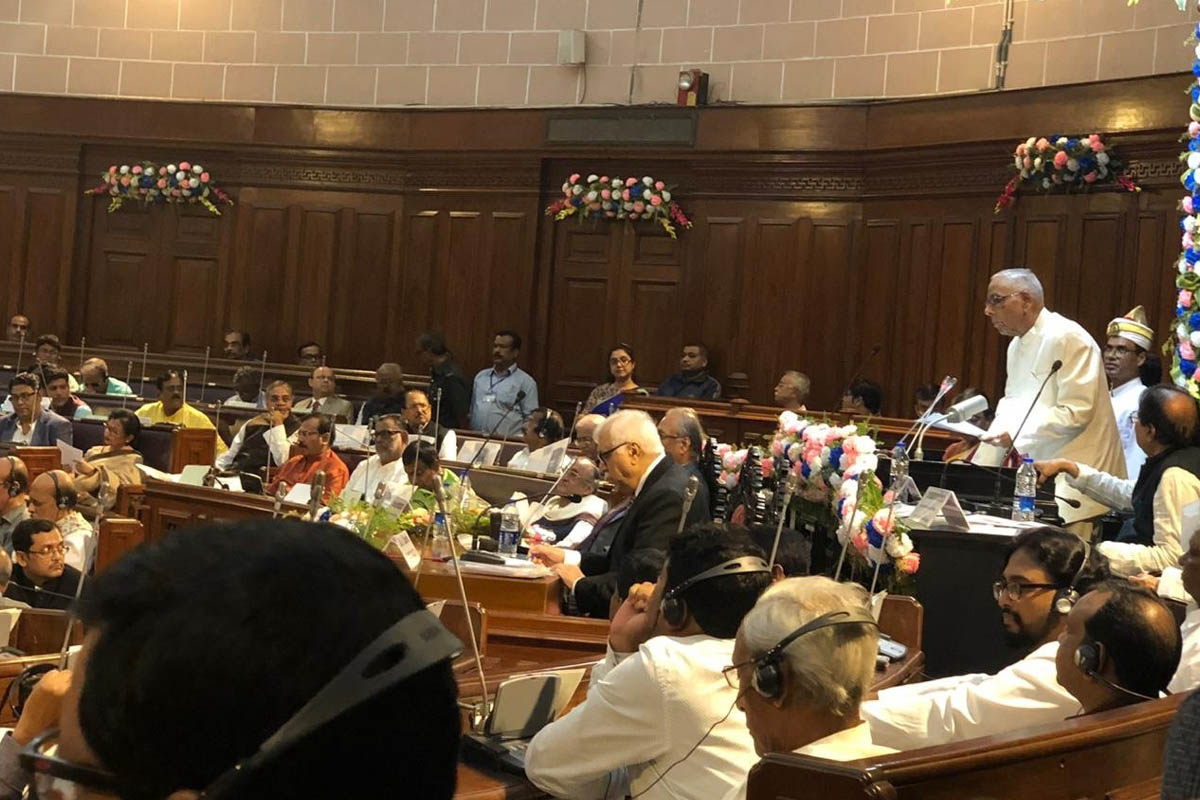Former Chief Election Commissioner SY Quraishi today advocated for separate electoral fund. He was addressing a special session of Bengal Assembly on ‘Constitution Day’ to mark the 70th anniversary of adoption of the Constitution by the constituent Assembly. The former CEC said: “On this day, 16 Articles came into effect, including Article 324 that laid the foundation for the establishment of Election Commission mandated with “superintendence, direction and control” of all elections.”
During proceedings of the Assembly, the Committee on Fundamental Rights recognised the independence and non-interference by the executive and legislature in the elections as fundamental right. He said in 2003, a statutory provision regarding political funding was introduced, wherein political parties could accept donations from individuals and companies. The donations were exempted from income tax. He also said Electoral Bonds is more a “deform than reform.’’
Advertisement
In his 2017 budget speech, the Union finance minister acknowledged that without transparency of political finance, free and fair elections are not possible. However, he removed whatever transparency existed by introducing electoral bonds, keeping donors and recipients secret, mitigating the citizens’ right, enunciated by the Supreme Court in 2003. Removal of ceiling of 7.5 per cent in corporate donations, and legalising foreign funding of the political parties, compounded the opacity of political finance, Quarishi said. These collective measures have institutionalised and legalised crony capitalism in India.
The matter has gone to the Supreme Court where it is awaiting setting up of a constitution bench. SC must realise that such a national significance cannot be put on the back burner, former CEC added. He also alleged,”While the Judiciary has been a great protector of democracy, it has been disappointing in at least one area, namely, the disposal of election petitions. The Representation of the People Act, 1951, requires the High Court to decide on election petitions within six months, but all high courts, except Kerala, have been taking four to five years or more to dispose of such petitions, making the exercise worthless, since by then the impugned MP or MLA has finished his full term.
On the same occasion, former West Bengal governor and national security advisor M K Narayanan said secularism enshrined in the Constitution is under threat. The choice is not between development and democracy. Progress does not mean suppressing democratic rights and liberal values. Narayanan was the governor of Bengal from 2010-2014. He shared the view of chief minister Mamata Banerjee on strengthening federal structure of the country. States are not subordinate to the Centre as both draw their strength from the Constitution of India, he added.
Former Chief Justice of Calcutta High Court, Justice Jyotirmay Bhattacharya said,”Governor cannot run a parallel administration but he should be allowed to discharge his duties within the constitutional limit.










